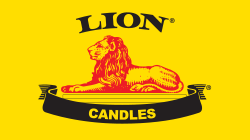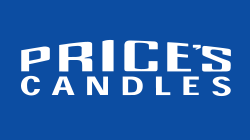

William Wilson and Benjamin Lancaster founded the candle making company, E.Price and Company in the 1830s in Battersea, United Kingdom. During this time they purchased the patent for the separation of solid and liquid constituents of coconut oil. This patent produced a substitute for tallow (beef fat) used in candle making. During the 1840s the company became known as Edward Price and Company, and was converted into a public company.
Due to the industry being, as they considered, vulgar the men did not wish to associate their names in the title. Instead, it was named after a distant and less sensitive aunt on Benjamin's side of the family. It was this period that they purchased the patent for the separation of solid and liquid constitutes of coconut oil that was used in candle making.
The company increased from 84 staff members to 2300 by 1855. By 1900 it was the largest candle manufacturer in the world.
The company was converted into a public company with a capital of £500 000.
Paraffin wax displaced stearine as the most important candle making raw material. Paraffin wax was obtained from distilling oil shale or petroleum to produce a wax distillate, from which dissolving in naphtha separated wax crystals.
The Battersea plant foreman John Hodges invented and patented the sweating process, which remains an important wax production process today.
Shell, BP, Burmah Oil and Unilever jointly own Price's Candles Limited.
Price's Candles Ltd bought the Burmeister Candle Factory in Cape Town. The premises were sold in 1923, and a new factory was opened in Observatory.
The factory was built in Newtown, Johannesburg, and extended in 1923.
Sasol started producing synthetic medium wax by the Fischer-Tropsch process. Price's Candles Newtown installed the first liquid wax tanks in South Africa.
Factory in Observatory, Cape Town burnt down and rebuilt.
Decision taken to trade directly with selected wholesalers and retail chains.
Introduced seven extrusion candle-making machines into South Africa. The extrusion method of producing candles was developed by Price's Candles UK..
Shell UK purchased the 64% shareholding of Price's Candles Limited from BP Trading (28%) and Burma Oil (36%) and sold the business rights of Price's Candles (SA) to Shell SA (Pty) Ltd.
Price's Candles (SA) (Pty) Ltd registered on 1 January as a wholly owned subsidiary of Shell SA, falling within the Business Venture Division. Two new Herrhammer drawing machines are commissioned at the Newtown factory, and a third factory is opened in East London.
White River factory acquired from H Timmerman. Durban factory (76% share) acquired from the Suleman family. Diversified into detergents and insecticides by taking over from Temana, the Teepol, Tabard and Vapona range of products.
Cera Oil SA (Pty) Ltd, a division of Shell South Africa, commissioned a sweating plant in Boksburg, for the production of paraffin wax for Price's Candles, using slack waxes as feed materials.
SasolChem acquires Price's Candles SA from Shell SA and operates it as a division.
Price's Candles purchased the sweating plant from Shell SA.
Price's Candles division is sold to Daelite Industries (Pty) Ltd. The company now became Price's Daelite (Pty) Ltd.
Sasol Wax purchased the Boksburg sweating plant from Price's Daelite.
All operations closed down except Newtown. Factory offices and the entire factory were extended and renovated. The main concentration was now on the manufacturing and selling of domestic candles.
Sasol Wax relocated the Boksburg sweating plant to Durban. Sasol Wax becomes the owners of Price's Daelite (Pty) Ltd. The company's name is changed to Price's Candles (Pty) Ltd.
Decorative candle range introduced to South African customers.
Price's Candles becomes a division of Sasol Chemical Industries.
Obtains BS OHSAS 18001 certification from DQS GmbH.
Lion Match Company buys Price's Candles.